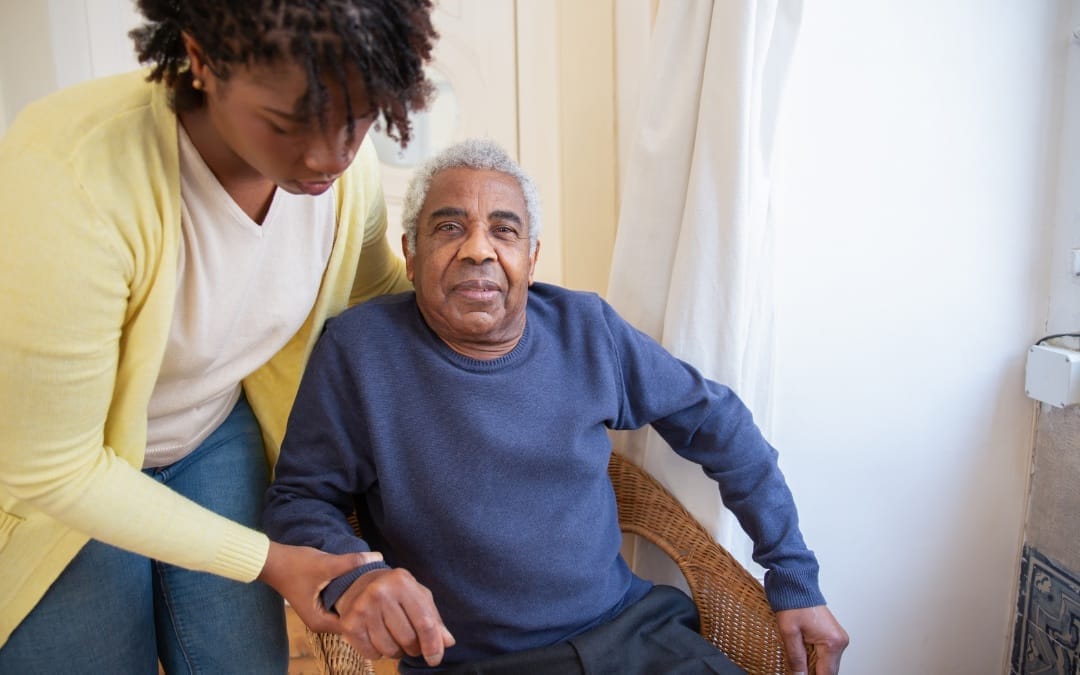As you age, a lot of focus goes to one attribute: balance. Good balance can help prevent falls and ensure both your safety and personal autonomy. But if a fall does occur, it can lead to severe injuries with dangerous ramifications—especially for seniors who live alone.
According to statistics from the CDC, about 36 million senior adults report a fall each year, and one out of five will sustain a bone fracture or head trauma as a result. However, this does not have to be an inevitable outcome of old age. You can take practical measures to reduce the risk of falling and pursue an active lifestyle in retirement.
To help jumpstart your balance and fall prevention journey, here are a few basic tips:
Check for Falling Hazards in Your Home
Conduct a thorough sweep of your home to identify potential falling hazards. Replace loose rugs with non-slip alternatives, secure electrical cords against the walls, and make sure all pathways are clear. For extra precautions, install handrails on any staircases and grip bars in your bathroom. Adequate light is also essential, so consider plug-in fixtures for the hallways and bathroom at night.
Invest in Adaptive, Non-Slip Shoes
Proper footwear plays a significant role in fall prevention, so choose functional, adaptive-style shoes with low heels and non-slip soles. The fit should be comfortable and replace any worn-out shoes to maintain optimal traction. Now we know this requires a financial investment, but it will pay off in the long run—foot and ankle support is one of the most effective ways to prevent falls.
Perform Strength and Balance Exercises
You can increase your balance, muscular strength, and bone density with a routine fitness program. Most adults over 65 need at least 150 minutes of moderate-intensity weekly exercise, but that doesn’t mean you need to become a marathoner overnight. Simple motions such as calf raises, one-leg balances or heel-to-toe walking will do the trick and create joint, bone, and muscle stability.
Stay on Top of Your Wellness Check-Ups
Specific underlying health issues—such as vision problems, arthritis, diabetes, or osteoporosis—can also increase the likelihood of falls. For this reason, scheduling a regular check-up with your doctor is crucial. Comprehensive wellness exams will detect health concerns that affect your balance or spatial awareness so you can address them. Even some pharmaceuticals cause faintness or dizziness, so consult with a doctor about the medications you’re taking as well.
Prioritize Optimal Nutrition and Hydration
Dehydration can lead to feelings of weakness, disorientation, low energy, or, in extreme cases, unconsciousness. These issues could seriously increase the risk of falling, so drinking enough water is imperative. Also, ensure you eat a nutritious diet rich in essential vitamins and minerals to sustain bone and muscle development. Think vegetables, fruits, legumes, lean meats, and whole grains (but don’t let that stop you from snagging a dessert).
Use a Mobility Aid if You Need Assistance
If you deal with frequent mobility challenges, use a cane, walker, or a similar device to assist with balance and movement. It could save you from severe fall-related injuries. Keep the device in stable condition, and adjust it to a height that feels most comfortable for your needs. Using mobility aids can also make it easier to perform activities that might otherwise be difficult.
Making Balance a Priority
The more you age, the more important it becomes to talk about balance and fall prevention. Following these steps will ensure optimal health, safety, and vigilance so you can take proactive measures without sacrificing the benefits of independent living. If you want to learn more about how we help our residents at Vineyard Senior Living maintain a balance-focused lifestyle, reach out to our team today or check out the Vineyard Life content on our website.

